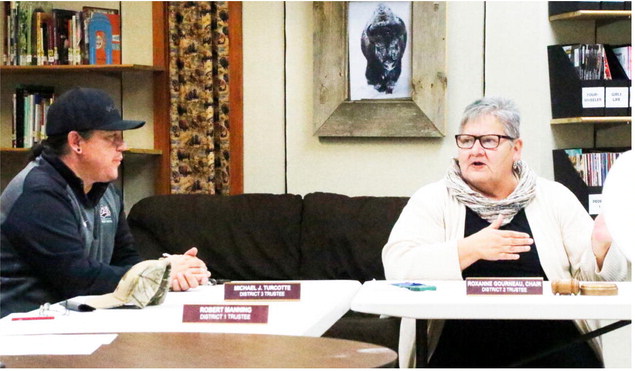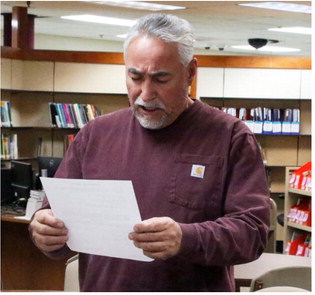Parental Rights In Education Bill Nears Passage During Session
A bill moving through the legislative process would give parents more rights in their child’s education, require school boards to share additional information regarding a student’s education with parents and allow parents to opt their children out of certain school instruction.
Sen. Theresa Manzella, R-Hamilton, is sponsoring Senate Bill 518, which would require school districts to provide information to parents on educational opportunities available to students in the district, and revise parental rights over educational decisions for children.
SB 518 passed the Senate on a party-line vote of 30-20 on April 4, and was amended by the House Judiciary Committee before passing 11-8 on April 19. The bill was passed by the House 58-41 on April 28, and will be transferred back to the Senate before it can be sent to the governor’s desk.
Rep. Lee Deming, R-Laurel, who is carrying the bill on the House floor, introduced the amendment to the bill that removed a section that would have required parents to provide written consent for a school to use a child’s nickname or alternate name that is not the child’s original name, but leave the part of the section that requires a parent to provide written consent for a child to use pronouns that do not align with the child’s sex at birth.
Rep. Donavon Hawk, D-Butte, spoke against the amendment during the House discussion on April 24. He said that the legislature’s purpose is to make amendments that make bills stronger, but this amendment does not accomplish that.
“As often as we do, we try to bring amendments to bills to either make a bad bill better or a good bill better. Or we try to bring amendments that help us sleep at night, but this amendment does neither of that,” Hawk said.
No one spoke in favor of the bill during the House discussion.
Rep. Mark Thane, D-Missoula, was one of two lawmakers to speak against the bill during the House debate. He questioned why the bill didn’t come from the House Education Committee, and instead was sent to the House Judiciary Committee.
“I would suggest to you that’s because the House Education Committee dealt with a bill previously that had these same provisions. That bill failed in committee, it was tabled, a special committee convened. It failed a second time,” Thane said.
He said that it failed because there are already requirements in Montana code that the Board of Trustees of a school district has to make to share information about curriculum and events to staff and the public.
The floor discussion on the bill was cut short due to a protest in the House Gallery after Speaker of the House, Rep. Matt Regier, R-Kalispell, would not recognize Rep. Zooey Zephyr, D-Missoula, when she was attempting to speak on the bill.
Charter School Bills
Lawmakers voted to table two bills that would authorize charter schools in Montana on April 26, and then the Senate revived the bills and passed them on April 28 on tightly contested votes.
Rep. Fred Anderson, R-Great Falls, is sponsoring House Bill 549, which would create a public charter school account to fund the building and operations of the schools. The bill also designates that charter school board members will be elected by the community at large, and follow similar guidelines to public schools across the state.
“This one we call the public charter school bill. It is an option given to the local school first. If they’re not supplying a certain area or something those students are lacking in, and it is brought to their attention and they don’t do anything about it. Folks can get together and go forward with a public charter school option,” said Sen. Dan Salomon, R-Ronan, who is carrying the bill on the Senate floor.
HB 549 gives power to the state Board of Public Education to approve or deny the opening of a new charter school, and requires them to monitor charter schools’ performance.
Currently, there is one public charter school located in Bozeman, and it is overseen by the Board of Public Education and the Office of Public Instruction due to federal money and grants the school receives.
The bill has been controversial, with members of the State Board of Public Education testifying during the bill’s committee hearings, saying that the entity doesn’t have the labor force or capabilities to track all the possible incoming charter schools.
The bill passed the House of Representatives 58-33 on March 31, with Democrats splitting votes 14-15. The bill was pushed out of the Senate Finance and Claims Committee on a party-line vote 11-8 on April 25, and was killed on the Senate floor when it failed a second reading vote 8-42 on April 26. The Senate then voted to revive the bill and passed it on a 27-21 vote. The House will now vote on the bill again.
No lawmakers spoke in favor of the bill during the Senate discussion on April 26.
Sen. Brad Molnar, R-Laurel, spoke against the bill during the Senate floor discussion. He said it’s just a wheel inside a wheel that holds the same oversight as normal public schools, and people who want to send their kids to charter schools want to do it for a more personal curriculum, which he believes this bill does not accomplish.
“You cannot explain why you would have two schools under the same supervision when one is supposed to be independent, and the local school board gets to decide if they even exist, which means they can decide if they cease to exist. It’s not independent,” Molnar said.
Sen. Russ Tempel, R-Chester, spoke against the bill during the Senate floor discussion. He said the bill isn’t needed, and that state law already gives public schools the authority to create a charter school.
Rep. Sue Vinton, R-Billings, is sponsoring House Bill 562, which is the other charter school bill that aims to privatize charter schools more than the other bill.
The bill exempts charter schools from requiring teachers to meet the certified state requirements placed on educators, and would use tax dollars to build the schools, but their oversight would be private entities, and commissions of individuals appointed by publicly elected officials.
“Public schools do not work for every student. It is essential that we provide more options and flexibility to choose the best educational path for their children. Whether, that’s supporting public schools, private schools and authorizing charter schools,” said Sen. Kenneth Bogner, R-Miles City, who is carrying the bill on the Senate floor.
Bogner said when implementing charter schools, the state has to make sure that it’s in a long lasting capacity, so that educational options will always be open to parents and children.
HB 562 was the more controversial of the two bills, and passed the House of Representatives on a party-line vote 59-33 on March 31. The bill narrowly escaped the Senate Finance and Claims Committee with an 11-8 vote on April 25, and was voted down during second reading on the Senate floor 23-27 on April 26. The bill was reconsidered following a tight vote 24-22 on April 27, where every Democrat and eight Republicans voted against reviving the bill. Amanda Curtis, president of the Montana Federation of Public Employees, has been an opponent to both bills, but said HB 562 takes authorizing charter schools a step way too far.
“In House Bill 562 everyone pays taxes, everyone pays for it, but the only people who can vote on who governs the school are the people whose kids are in schools and employees,” Curtis said.
Curtis said while HB 549 is much tamer than 562, it’s still putting a foot in door to possibly reaching the same outcome. She said in HB 562, allowing teachers to not have licenses and allowing schools to not adhere to Montana school code standards are both problematic. She said HB 549 doesn’t follow that same line and would still require charter schools to follow Montana code and provide licensed teachers.
“The schools there would be subject to a section of Montana code called Title 20. That says the school buildings have to be safe and that there can’t be lead in the water and that the ceilings can’t be falling in. But, in House Bill 562, they specifically exempt schools from anything in Title 20,” Curtis said.
Curtis said HB 562 would just send tax dollars to companies without any oversight, and that the state is not prepared to adjust the funding formula to accommodate both public schools and charter schools.
She said pushing through legislation like this would cause ripple effects to taxes on everyday Montana, and most likely increase property tax exponentially in the future.

